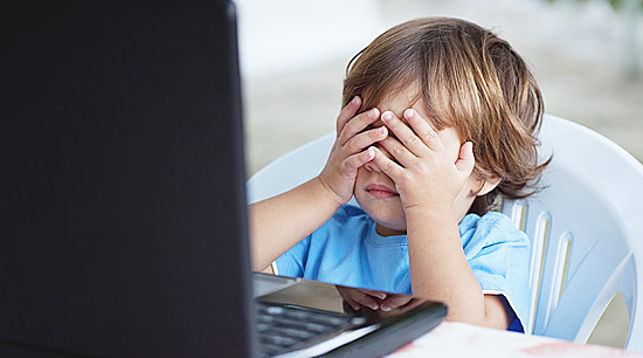Internet today is not only a source of information but a medium that connects every aspect of human life in the twenty-first century. The digital world plays immense role in day-to-day activities of people, including children. With fast internet services and advancement of technology and without right guidance and supervision, children are at risk of psychological harm that could derail their future.
According to a recent study, children who spend more time using internet facilities tend to experience higher levels of emotional distress, anxiety and depression. Available statistics show that ninety per cent of teens between the ages of thirteen and seventeen years are on social media out of which fifty-one percent of them are daily active.
Social media platforms were introduced to connect people around the world for regular interaction but in recent times, most of their platforms have been dominated by indecent and dark contents with harmful impact on psychology, especially on children.
Today, many children have access to smart phones, tablets, personal computers, video games and other high tech gadgets with which they explore many sites without restriction nor control. Much of the content children are exposed to on the internet are not only harmful but detrimental to their wellbeing. Some of these children have undeterred access to phonographic sites which give them unrealistic and negative view and perception about sex. Many of these sites glorify homosexuality, lesbianism and other abnormal sexual relationship that are likely to plant negative sexual orientation in their sub-consciousness. Many of them are exposed to cyber dating and cyber sex as well as sex addiction and masturbation.
Similarly, the increasing rate of cult activities, violence and killings according to experts, are not unconnected with exposure to internet. Many of the adult sites celebrate violence as entertainment content which children often misconstrue as norm and demonstration of prowess and status symbol in the society. Children also meet and interact with people of different character online who can give them dangerous indoctrination that can awaken violent tendencies.
Again, children who spend more time on internet can become less connected to family and friends as they gradually get use to virtual connection where they share photos, video and text messages online. This weakens the bond between parents and their children.
In a similar view, allowing children unfettered access to internet will decrease their physical and psychological wellbeing which could lead to distress, anger, loss of self control, social withdrawal, family conflict, isolation, depression and even suicide.
According to health experts, overuse of internet facilities can be harmful to the health of children because the more time they spend with their devices the less time they have for play, games and other physical activities necessary for balance growth and development. Similarly, overuse of digital devices reduces the quantity and quality of sleep children receive as they often sleep less as they should. Lack of sleep can have serious consequences on brain activities.
There have been cases where children buy game credit online without even informing their parents. Allowing this practice to continue would encourage a child to develop and nurture appetite for gambling and betting. Today many graduates are more interested in spending their time at betting centres instead of engaging in productive activities to help build the economy.
There is no doubt that internet plays important role in the day to day activities of children in the twenty-first century. The emergence of covid-19 has made on-line teaching and learning indispensable aspect of the school system in every country across the world. This has put more digital devices in the hands of more children without much control and guidance.
However, let us remember that wisdom, knowledge and skills are important for survival; but they must be applied properly.





Comments are closed for this post.